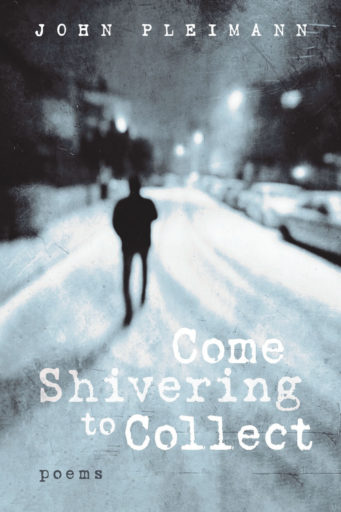

Searching for Home, Robert Pack’s splendid twenty-second collection of poems, written largely during his last year of life, centers on the search for meaning. At its heart are sequences of poems about three figures, each a seeker after some physical or conceptual home where uncertainties are overcome.
| Hardcover | ISBN 9781639821488 | $32.00 |
| Paperback | ISBN 9781639821471 | $17.00 |
| eBook | ISBN 9781639821495 | $12.99 |
Searching for Home, Robert Pack’s splendid twenty-second collection of poems, written largely during his last year of life, centers on the search for meaning. At its heart are sequences of poems about three figures, each a seeker after some physical or conceptual home where uncertainties are overcome.
The search for meaning informs other deeply felt poems, likewise rendered in supple metrical language, as well as themes of empathy, peace, and the beauty of nature—pushbacks against disappointment, mortality, and the human propensity for cruelty and violence. It is a landscape dotted with remembered moments of joy and wonder: otters slide down a muddy slope, kids put on a hilarious version of The Odyssey, a dog teases a little boy. . . . Searching for Home is both a vision of Pack’s own odyssey and his final testament to what matters.
Robert Pack was an earthy poet of the spirit, a man who has listened to the angels, taken down their dictation, grounded their words in physical realities. In his final collection, it’s the sequence on Einstein that seems destined for eternity. In each of his poems, there is a special music, one that owes a great deal to the vast experience of poetic forms that this poet brings, again and again, to the table.
Jay Parini, author of The Last Station
For fifty years I followed Bob Pack’s extraordinary career as a poet, and once more I am deeply moved by this, his final book of poems. Einstein, Darwin, his dear Uncle Phil and his beloved Patty: it all reads like a Bach cantata, laced with humor and sadness and a deep philosophical wisdom as he once more probes into the mystery of what it means to be human, especially as the sun sets and we go on searching for what we call our home.
Paul Mariani, author of All That Will Be New
Whether bearing witness to the ever-shifting seasons around his Montana home or pondering the mysteries of evolution and relativity, Robert Pack is our poet of cosmic transformation.
John Elder, author of Reading the Mountains of Home
Bob Pack has left us, his fond readers, former students, and grateful friends a wonderful gift with this last collection of poems, Searching For Home. When a writer whose work we have followed for decades dies, we feel the loss not just of the person, but also of any future poems from them. As if anticipating our loss, Bob Pack gives us one final collection of poems that abound with humor, generosity, playfulness, and compassion for life itself in all its variety, perplexity, cruelty, and wonder. His range is wide—from Einstein to otters to Moses, and in one favorite poem: from the butterfly to the sun. His imagination is full of gusto and curiosity, its guiding spirit could well be the words of Terence, the Roman poet: “I am a human being, nothing human is alien to me,” but extended beyond our species border. Nothing on this earth or universe is alien to him, his heart capacious enough to contain it all and his lifetime of crafting poems honed to exquisite lyricism, and wit! “Here lies Bob Pack who never could retire, / he had so many ironies in the fire,” he writes in one poem. Even that, he has given us, his own epitaph.
Julia Alvarez, author of Afterlife and In the Time of the Butterflies